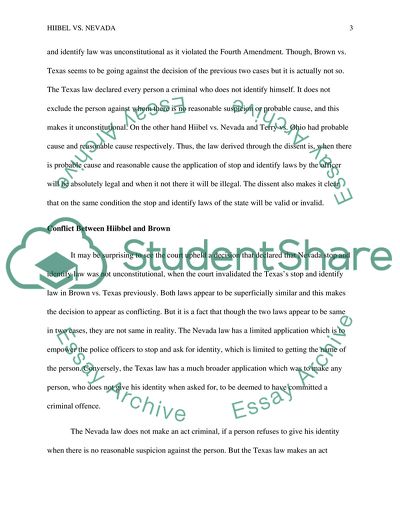Cite this document
(“Analysis of Hiibel Vs. Nevada Case Term Paper Example | Topics and Well Written Essays - 1000 words”, n.d.)
Analysis of Hiibel Vs. Nevada Case Term Paper Example | Topics and Well Written Essays - 1000 words. Retrieved from https://studentshare.org/law/1759357-hiibel-vs-nevada
Analysis of Hiibel Vs. Nevada Case Term Paper Example | Topics and Well Written Essays - 1000 words. Retrieved from https://studentshare.org/law/1759357-hiibel-vs-nevada
(Analysis of Hiibel Vs. Nevada Case Term Paper Example | Topics and Well Written Essays - 1000 Words)
Analysis of Hiibel Vs. Nevada Case Term Paper Example | Topics and Well Written Essays - 1000 Words. https://studentshare.org/law/1759357-hiibel-vs-nevada.
Analysis of Hiibel Vs. Nevada Case Term Paper Example | Topics and Well Written Essays - 1000 Words. https://studentshare.org/law/1759357-hiibel-vs-nevada.
“Analysis of Hiibel Vs. Nevada Case Term Paper Example | Topics and Well Written Essays - 1000 Words”, n.d. https://studentshare.org/law/1759357-hiibel-vs-nevada.


